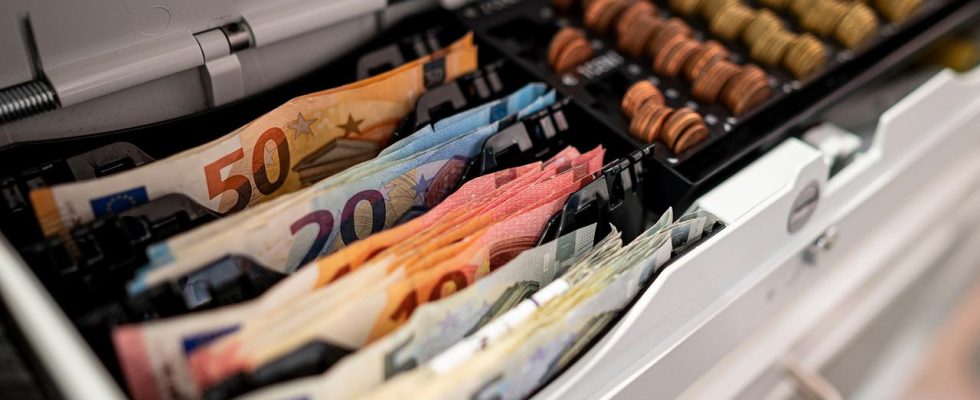In retail, payments are increasingly being made electronically or by card. At the same time, cash has some advantages. The Bundesbank now wants to support the traditional payment method with a campaign.
It is often rumored that the end of cash is near. The concern arises when limits on cash transactions are discussed to curb money laundering. It appears in the popular press when people consider withdrawing small coins for cost reasons. Unsuspecting tourists fear an end to cash when they are only allowed to pay cashless in fashionable Berlin restaurants.
The Bundesbank is now supporting cash with a broad campaign. Bundesbank board member Burkhard Balz made it clear at a press conference in Frankfurt am Main that cash is part of a country’s essential infrastructure and is indispensable.
“Core task and core product”
In four weeks, Balz announced, the first National Cash Forum would be held in Berlin, to which retailers, banks and authorities are expected. In preparation, the Bundesbank has published a brochure “Cash of the Future”, which outlines images of the future. They are intended to make it clear that a fully digitalized future with little cash brings with it dangers.
Among other things, the Bundesbank has the function of a central bank: together with the European Central Bank (ECB), it ensures the production, control and distribution of cash. “Cash will always remain a core task for us,” said Balz. “Core task and core product”.
Necessary for the mild gift
The advantages over cards, accounts and wallets are banal: cash works even without electricity, is easy to transport, easy to store and clearly identifiable. In crises and disasters, cash is often the only means of still being able to buy and pay.
Even in normal times, there is a lot to be said for cash: most people have a better overview of their finances when they pay in cash. The damage caused by cyber theft of accounts is far greater than that caused by the theft of cash. Kind donations and small gifts for children can practically only be paid in cash. Whether the anonymity of cash is an advantage or a disadvantage depends on your perspective. Private individuals think of discretion, tax investigators and prosecutors think of crooked business, money laundering and illegal work.
Studies show that the proportion of cash transactions is falling. The most recent data from the regular Bundesbank investigations into payment behavior come from 2021: 58 percent of purchases were paid for in cash at that time. Four years earlier it was 74 percent. The Cologne institute EHI found that by 2023 only 37.5 percent of customers in retail would pay in cash.
Costs for vending machines and logistics
Cash is being used less and less in everyday business. Calculated on an individual purchase basis, the costs caused by the cash system increase. This puts a strain on banks, retailers and the Bundesbank. “We don’t just want to stand on the sidelines observing and commenting,” says Bundesbank board member Balz. He sees the planned National Cash Forum as a first step towards finding solutions.
For banks, the costs of branches, ATMs and the handling of cash are significant. At the same time, pure payout business brings nothing to the bank. The number of bank branches has been falling for years. There are also fewer and fewer ATMs. Since cash can now be obtained at many supermarket checkouts using credit and debit cards, access to fresh money has not yet become difficult. But if more and more payments are made without cash, supermarket checkouts will also run out of money.
The “cash paradox”
While the proportion of daily transactions conducted in cash is decreasing, the total amount of money is increasing. Bundesbank board member Balz spoke of the “cash paradox”. Enormous amounts of money are apparently being stored by banks, companies, private individuals and criminals.
Twenty years ago, the Bundesbank issued banknotes worth 165 billion euros. At the end of 2022 it was already 381 billion euros. Balz said another 21 billion were added last year.

